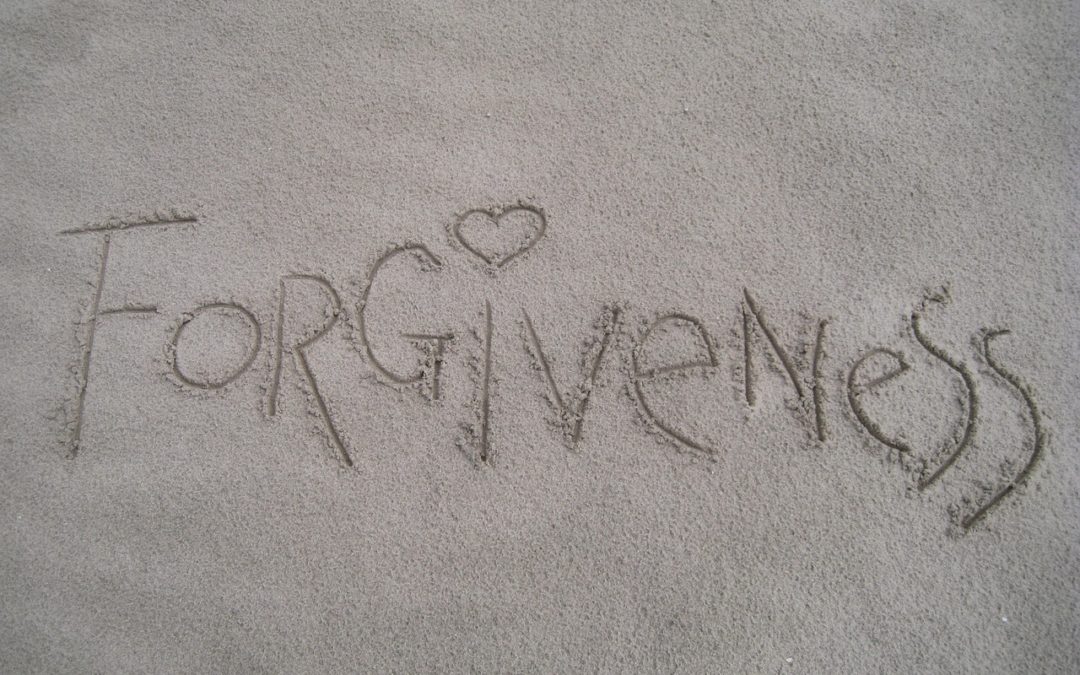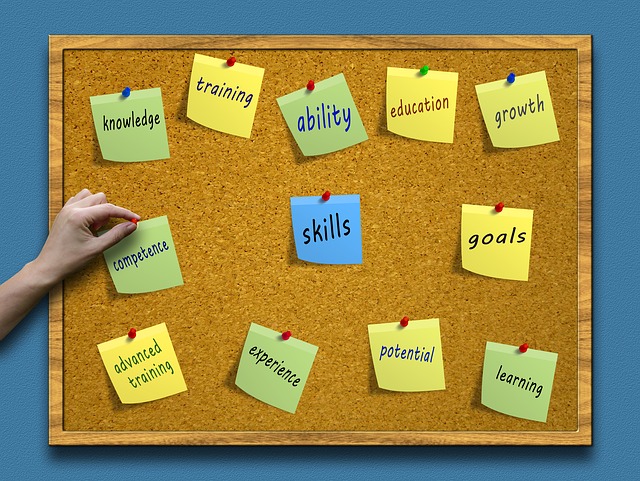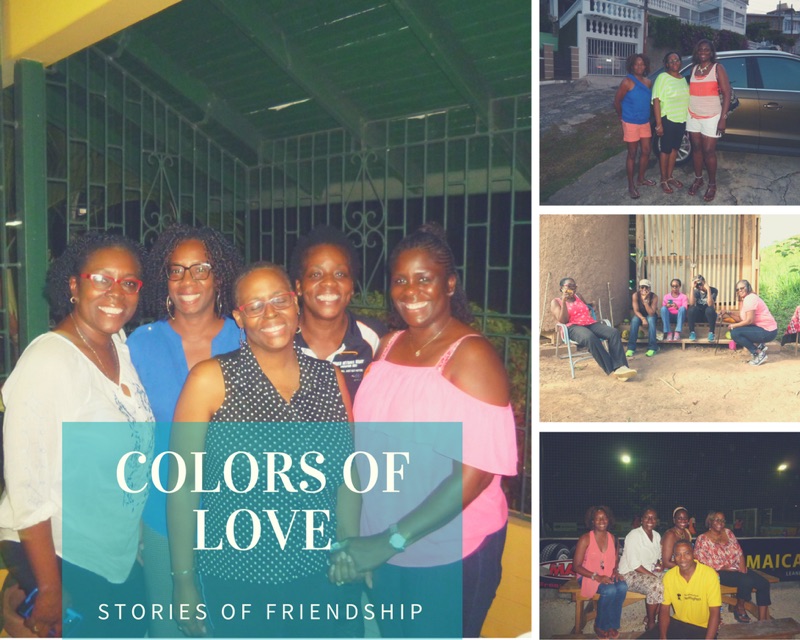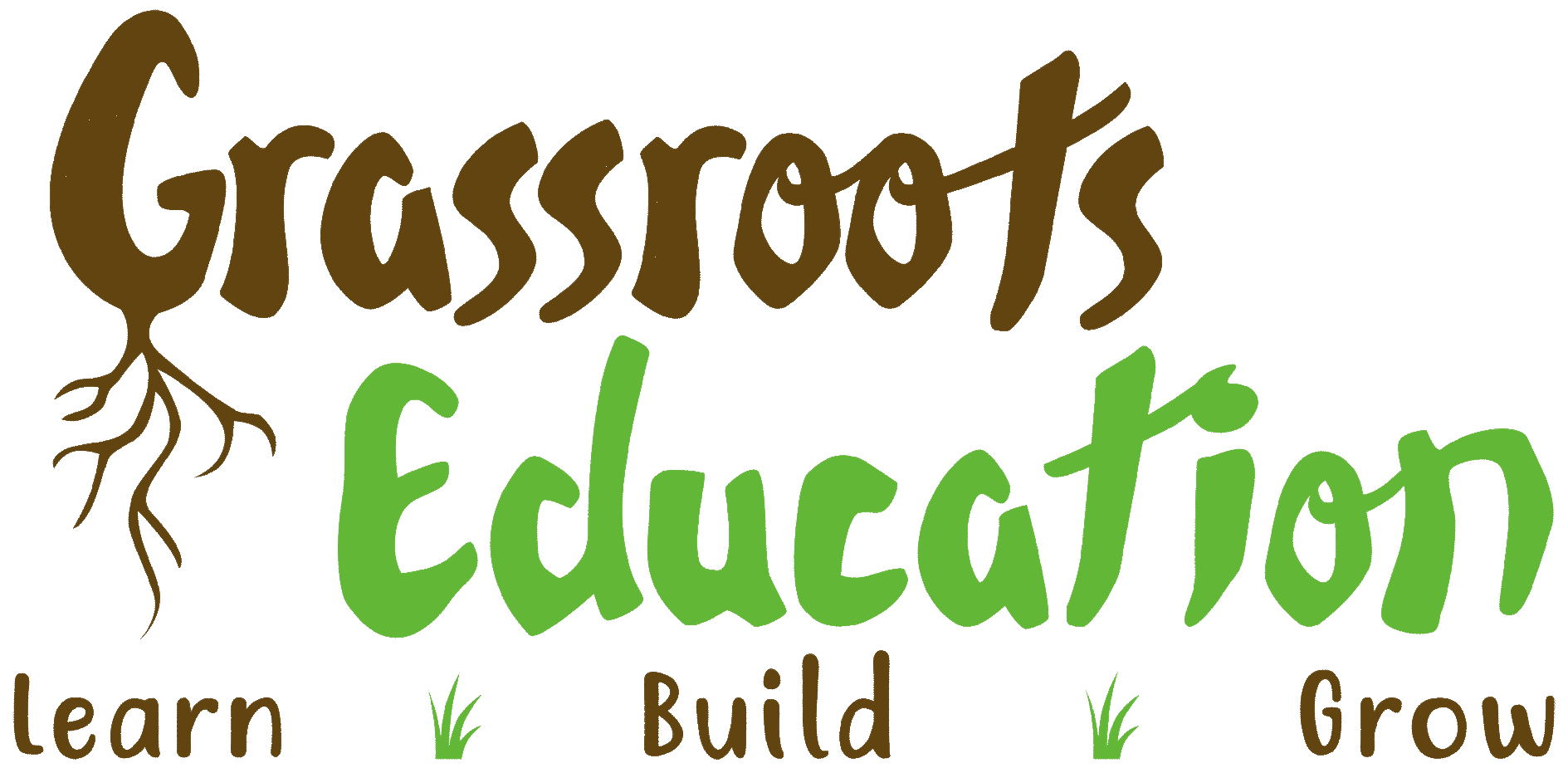
by Marcia Davis-Dawkins | Apr 20, 2018 | Education
Forgiveness
 By Dr. Marcia Davis-Dawkins
By Dr. Marcia Davis-Dawkins
Lewis S. Smedes, ethicist and theologian once said, “To forgive is to set a prisoner free and discover that the prisoner is you.” I would dare to add that it brings peace when you forgive. Many people, including myself, wrestle with forgiving others. What does it mean to forgive? The Cambridge Dictionary defines forgive as, “to stop blaming, feeling angry or resentful toward (someone) for an offense, flaw, or mistake.” For the most part, we have all heard that it is important to forgive those who have wronged us so we can move on and live at peace, yet we remain unforgiving. Like Iyanla Vanzant once mentioned, “Forgiveness is not what you do for someone else. It is what you must do to free yourself from distorted perceptions and judgments that create fear, anger, and hatred. It is what you must do to eliminate internal confusion and conflict. “
A long time friend shared this with me recently, “Don’t complain about who did you wrong and how unfair it was. If it were going to keep you from your destiny, God would not have permitted it. Shake it off and get ready for new doors to open, for new opportunities.” This was reiterated when I called another friend and told him that we should not harbor grudges or keep malice. I am also convinced that most times when we harbor malice and don’t forgive, we are the ones who are being hurt since the other person moves on and seems happy.
Death is certain. No one escapes it, but we have to live at peace with everyone so that we pass through with love and tranquility. Forgiveness does not come easily for most, though. We should make a concerted effort to do so. Just like we need each organ in our body, we also need each other. Consequently, we need to forgive each other so we can function as human beings. Don’t think about the things that people do to upset or frustrate us. Don’t poison our being by not forgiving.
When a deep injury is done to us….
I cannot write about forgiveness without thinking of Nelson Mandela who had many things to say about forgiveness. One of them is, “When a deep injury is done to us. We never heal until we forgive.” He endured many inequities that he would and could remain unforgiving about, but he chose to forgive because he wanted to move on. Being forgiving requires courage, but it goes a long way. I realize that we tend not only to remember, but often obsess about, the injustices done to us, but we can forgive the wrong doers. Mandela also said that “Resentment is like drinking poison and then hoping it will kill our enemies. “ It is easy to say we should forgive; we also have to realize that people deal with being hurt differently and that we don’t know the severity of the hurt.
As an educator, it can be challenging to teach forgiveness to our students especially when we are not forgiving. In a previous blog titled “Friendship,” I stressed that “Just as we don’t write off our friends after a small disagreement, we should also have a forgiving heart with our students. Each day starts with a clean slate and we never know how that single act of thoughtfulness can impact a student’s life.” I understand all too well how difficult that advice may be to follow, but holding grudges has no place in the classroom. Forgiving students for any and all past misbehaviors and indiscretions, including disrupting lessons, challenging authority, or bullying or ridiculing others is a powerful act. It takes concerted effort, for sure. Never react emotionally in the moment. Breathe, contemplate and choose your words wisely and thoughtfully. This forgiving, this form of complete absolution, serves to dissolve distrust and soothe vindictive hearts. It validates the notion that while one’s behavior may be unacceptable, they, as a student are still a valued member of the class. It helps students to understand that their past actions do not determine their future if they are willing to change egregious behavior. Forgive, both in the classroom and out!!
No Man Is An Island

by Marcia Davis-Dawkins | Apr 6, 2018 | Education
True Friends Never Part

By Dr. Marcia Davis-Dawkins
It has been said that a true friend is one who walks in when others walk out. It is that person who often knows us better than we know ourselves. With gentle honesty, they are there to guide us, to support us, to share our laughter and wipe our tears. Their mere presence serves to remind us that we are never really alone. I lost such a treasure last week when my dear friend passed. While my heart is broken and I am numb with grief, I realize that her absence affects me so greatly because her presence meant so much. I bade farewell to you my sister but our roots go way back to the days of Sunday School, youth camps, retreats, fun days and “press hair”.
Let me start at the beginning.
As a little country (rural Jamaica) 9-year girl going to live in the city of Kingston, Jamaica, I was truly apprehensive and not ready for what my new world had in store. One of the first people I met at church and Sunday school was this wonderful and amazing soul, whom I would later call my dear friend. A few years after, I realized that we were going to attend the same high school and eventually the same college, sing in the same choirs, and go to camp together. In fact, we often joked about the time when we sang in the 3 M’s (Marcia, Michelle and Marie) and we knew that she was the one who held the group’s harmony.  She loved to read and guess what? I wanted to be able to love reading just like her. Oh, how I wanted to be emulate her, including singing, being a Sunday School Secretary, tackle the same business subjects as she and on and on. I even wanted to play the piano because she played. I was really excited when I talked to her a few months before her passing to tell her that I had started learning to play the piano. Oh, the amazing encouragement she showered on me as I told her this wonderful news. Even though we were the same age, she was a wonderful role model. Wherever she was I wanted to be there and we always seemed to be in the same space. So much so, that when I migrated to England, I was excited to discover that she would be in the same area studying what she loved: Accounting!! It was real. Coincidentally, when it was time for us to specialize in high school I consulted her to see what subjects she was taking because I was so indecisive and sure enough whatever reasons she gave I went along with them and to date I have not regretted them. You might think that I didn’t know how to be me, but that was not the case. It somehow meant that I admired her zeal and her tenacity for life and I realized after many years that she wanted to be like me!!! Imagine my surprise when I found this out. Over the years the distance did not stop us from keeping in touch, we went from letter writing to using the various forms of technology to keep in touch. We never grew tired of each other and we always found something to talk about and encourage each other about.
She loved to read and guess what? I wanted to be able to love reading just like her. Oh, how I wanted to be emulate her, including singing, being a Sunday School Secretary, tackle the same business subjects as she and on and on. I even wanted to play the piano because she played. I was really excited when I talked to her a few months before her passing to tell her that I had started learning to play the piano. Oh, the amazing encouragement she showered on me as I told her this wonderful news. Even though we were the same age, she was a wonderful role model. Wherever she was I wanted to be there and we always seemed to be in the same space. So much so, that when I migrated to England, I was excited to discover that she would be in the same area studying what she loved: Accounting!! It was real. Coincidentally, when it was time for us to specialize in high school I consulted her to see what subjects she was taking because I was so indecisive and sure enough whatever reasons she gave I went along with them and to date I have not regretted them. You might think that I didn’t know how to be me, but that was not the case. It somehow meant that I admired her zeal and her tenacity for life and I realized after many years that she wanted to be like me!!! Imagine my surprise when I found this out. Over the years the distance did not stop us from keeping in touch, we went from letter writing to using the various forms of technology to keep in touch. We never grew tired of each other and we always found something to talk about and encourage each other about.
I will also miss her kind spirit, her work ethic, and her willingness to go the extra mile for me. If I needed a ride to go somewhere, she will be the one to offer. I miss her comforting words and I know that even now, she would be saying, “Marci, I am okay, don’t worry yourself!” All said with that infectious smile and a glitter in her beautiful eyes. I will even miss the way her eyes closed when we took photos, As I reflect on our lives together, I don’t remember us even having a disagreement. As stubborn as she was, we always seemed to talk things through and manage to laugh at each other. Whenever she was in pain, I was in pain and the reverse was true. Sometimes we would share our woes about our parents and how unfair and unreasonable they seemed, and we would laugh and cry about what seemed like misfortunes.
 It’s thought-provoking that my friend passed away on Holy Week (in the Christian community), when the Lord suffered on the Cross, I feel like my friend also suffered and was able to reflect on her life during her hospitalization. In fact, when she initially told me of her diagnosis, she realized that I might be worried (given my personality) she said to me, “It’s okay Marci, I had a long talk with God and I am ready. Don’t worry yourself.” As she said those words tears streamed down my face and I knew I had to have the same faith as she. During her stay at the hospital she would continuously say, “Don’t worry, just continue to pray for me.” My prayer initially started off as “Lord please heal my friend so that she can have a huge testimony,” but then it changed to “Lord, not my will but Your Will.” Talk about transition! As I continue to heal about her recent death, I know I just miss me being able to pick up the phone and call her so we can talk and maybe giggle like kindergarteners. I am grateful for her life and the amazing friendship that we shared. I will treasure it forever and ever. I continue to make an affirmation that: My life: my mind, my body, my emotions, my soul and spirit reflect the glory of God and point people to Him. I continue to want to be like my friend and want others to see the Light in me through my walk, my talk and even my smile! I want to know and learn more about God as indicated in Psalms 42:12 – “As the deer pants for flowing streams, so pants my soul for you, O God. My soul thirsts for God, for the living God.”
It’s thought-provoking that my friend passed away on Holy Week (in the Christian community), when the Lord suffered on the Cross, I feel like my friend also suffered and was able to reflect on her life during her hospitalization. In fact, when she initially told me of her diagnosis, she realized that I might be worried (given my personality) she said to me, “It’s okay Marci, I had a long talk with God and I am ready. Don’t worry yourself.” As she said those words tears streamed down my face and I knew I had to have the same faith as she. During her stay at the hospital she would continuously say, “Don’t worry, just continue to pray for me.” My prayer initially started off as “Lord please heal my friend so that she can have a huge testimony,” but then it changed to “Lord, not my will but Your Will.” Talk about transition! As I continue to heal about her recent death, I know I just miss me being able to pick up the phone and call her so we can talk and maybe giggle like kindergarteners. I am grateful for her life and the amazing friendship that we shared. I will treasure it forever and ever. I continue to make an affirmation that: My life: my mind, my body, my emotions, my soul and spirit reflect the glory of God and point people to Him. I continue to want to be like my friend and want others to see the Light in me through my walk, my talk and even my smile! I want to know and learn more about God as indicated in Psalms 42:12 – “As the deer pants for flowing streams, so pants my soul for you, O God. My soul thirsts for God, for the living God.”
I will never forget you… your laughter, your child-like smile with that twinkle in your eyes; the way your eyes closed when we took photos and of course your unmistakable, melodious alto voice. You were gracious, never forgetting to say thank you, even as you lay sick in the hospital; loving – always giving a tender pat, hug or touch; loyal, remaining faithful to those you loved and held dear.
As an educator and a parent, I would love to be able to teach the strength and unity of friendship, as well as the pure beauty of it. I would like to impart what I have become cognizant of while reflecting upon my friend’s life and passing, which is that we never lose people we love, even to death. They continue to participate in every act, thought and decision we make. Their love leaves an indelible imprint in our memories. While our hearts ache and our tears may flow freely and abundantly, we can find comfort in knowing that our lives have been enriched by having shared their love. Ultimately, grief is not the absence of love, but proof that love existed and is still there and as long as the relationship lives in our hearts, true friends never part.
Friendship

by Marcia Davis-Dawkins | Mar 30, 2018 | Education, Kids, Parents, Teachers
Am I Dependable?

By Dr. Marcia Davis-Dawkins
Neal A. Maxwell once said, “God does not begin by asking us about our ability, but only about our availability, and if we then prove our dependability, he will increase our capability.” One of the qualities that I hold dearly is being dependable. Being dependable means giving your word and sticking to it, so others can see that you are reliable. Of course, there are sometimes unforeseen occurrences that might stop you from fulfilling your promise, and that is understandable. However, if a person is consistently late or doesn’t keep his/her word, then that is problematic! For the most part, a person should be accountable for his or her actions.
Being dependable 
Being dependable includes being trustworthy and reliable. This is regarded as a skill and character trait that employees deem necessary to be part of their business. If we were to think about the word dependable, I am certain that some of us will start thinking of friends whom we consider reliable. There are some with who we have been through thick and thin and we know that we can rely on them to literally move mountains for us. These friends are also the ones that you can always count on to dig us out of any ditch or simply just to be there for us. I have friends who, despite being separated by distance and time zones, I still routinely communicate with and these people will traverse the globe to be my side if needed. If I were to have a problem to deal with, I can call them at odd hours of the nights, and they are willing to lend a helping hand, provide a listening ear or make suggestions. I also know for certain that if they say they will do something, it will be done. They are steadfast, loyal and staunch constants in our lives. We have all heard of the old adage, “A friend in need is a friend indeed,” and when you have true, dependable friends, that is definitely an advantage. There are friends that if they tell you that they will be at a place at a certain time, they are there. If they aren’t,  then you wonder if something went wrong because you know you can always rely on them. If you are constantly late, then you are not dependable and I might go further to say that you might not be a committed friend or colleague.
then you wonder if something went wrong because you know you can always rely on them. If you are constantly late, then you are not dependable and I might go further to say that you might not be a committed friend or colleague.
How many of us have had experiences where we were part of a group project in high school, college or work and each person is given a specific task and it ends up that you have to do the work of several people because some weren’t dependable? How do we feel? Their talents mean nothing if they are not dependable. What do we think of those people, who didn’t do their job? As an educator, I know for sure that I would love to have dependable co-workers on my team/project so that we can collaborate and work towards making students dependable, while simultaneously being role models. I believe we can nurture students to be dependable since it is an important and necessary life skill.
Being dependable fosters good relationships (which can be difficult to find); it encourages and counteracts trustworthiness. It’s time to take a self-inventory. Are you like the weather and subject to change, or like granite: solid and dependable?
The Power of Words

by Marcia Davis-Dawkins | Mar 22, 2018 | Education, Kids, Parents, Teachers, Teens
Perpetually Grateful

By Dr. Marcia Davis-Dawkins
Showing appreciation…
It has always confounded me that some people find it difficult to say “thank you” when they are given something. Showing appreciation just seems like the normal thing to do, but for some people it’s really arduous. I have had the opportunity recently to examine that for which I am grateful– things that I take for granted. What might seem trivial to some, but not to others – being able to breathe, see, talk, walk, have a place to live or even have a job. I believe that we should consider everything and every circumstance as a blessing, and therefore be grateful. We should not lose sight of gratefulness. I think it takes much effort to be thankful, but with constant practice it can become a habit.
How do I see being thankful? I believe that as I journey through life and its processes, I accept that everything I do and experience is for a reason and there is a lesson to be learned. Accordingly, I have begun looking for the lesson to be learned. It also means stepping back and reflecting on the experiences so I can elicit those lessons and then give thanks. I am reminded of a song that we. sang in the choir, by Brooklyn Tabernacle Choir, that says “In Everything Give Him Thanks” and it further instructs to “give thanks in the good times, in the bad times, let’s do the same.” It means that even when my childhood friend of many years is critically ill, and I am miles away from her and feeling helpless, I should not be paralyzed with sadness and remain idle. I can still be grateful that I know her, have shared amazing times with her, learned countless things from her, spent many quality times with her, shared laughters, secrets and even tears. I am grateful for the friendship we have and I know that we have grown even closer in the last six months since her cancer diagnosis. In fact, we have a group of five ‘friends  forever’ with whom we have a special bond and we celebrate our friendship and compassion for each other. I am thankful for the values we were taught by our parents to pray together, sing together, share our family difficulties together and tried to work out solutions. This empathy that we share is plenty for which to be thankful. We are always there for each other, in good times and in bad.One of the things that I hear is that even though our friend is sick, she always utter how grateful she is. A member of our team of the “friends forever” is always at the hospital helping our sick friend. We are giving thanks for her dedication and love. This love sincerely is from the love of God. Hence, we can pass on these special attributes to our children, students, and co-workers, reminding them daily that in the end, it is not what we possess, but what we shared, that is significant.
forever’ with whom we have a special bond and we celebrate our friendship and compassion for each other. I am thankful for the values we were taught by our parents to pray together, sing together, share our family difficulties together and tried to work out solutions. This empathy that we share is plenty for which to be thankful. We are always there for each other, in good times and in bad.One of the things that I hear is that even though our friend is sick, she always utter how grateful she is. A member of our team of the “friends forever” is always at the hospital helping our sick friend. We are giving thanks for her dedication and love. This love sincerely is from the love of God. Hence, we can pass on these special attributes to our children, students, and co-workers, reminding them daily that in the end, it is not what we possess, but what we shared, that is significant.
As humans we tend to be complainers, but we need to find something to be more appreciative about in EVERYTHING!!!! I am reminded of the old adage that some people see the glass half full, while others see the glass half empty.
 It is time to be enlightened and simply be grateful to have a glass.
It is time to be enlightened and simply be grateful to have a glass.
Being an educator, we often feel overwhelmed with issues we face with our students whom we deem “unteachable” due to learning disabilities or because of behavior problems, but at times we can learn so much from the experiences we encounter. We are so caught up that we forget to stop and to be grateful for the challenges or for the fact that we may be the one to help make a difference to that student. The experiences usually make us stronger.
Being grateful has started to give me a different viewpoint on life and my journey of being renewed and empowered. Join me on this journey of making our thanksgiving perpetual!
The Power of Words

by Marcia Davis-Dawkins | Mar 14, 2018 | Education, Kids, Parents, Teachers, Teens
Change Our Positions!
 By Dr. Marcia Davis-Dawkins
By Dr. Marcia Davis-Dawkins
Socrates once said, “The secret of change is to focus all your energy, not on fighting the old, but on building the new.” Change can be difficult and I am sure most people would agree that they have had regrets, things that they could redo if given the opportunity. There are others who would say, “What is the point of starting over, I am not good at this so why bother!” I beg to differ. Change means reinventing one’s self and while difficult, is often necessary and ultimately rewarding. Lives may need to be modified after a failed marriage, a failed relationship, losing a loved one through death, changing a career path, losing, or starting a new job. In essence, change is usually a result of a heart being broken or a mind being opened. Some might say, why change when I am so old? In response, I am reminded of C. S. Lewis’ quote “You are never too old to set another goal or to dream a new dream.” 
Change is new process in our lives.
Why might adjustment be necessary? I learned to drive using a stick shift and it was very intense. I clearly remember the driving instructor saying that I should listen to the engine as this was an indicator that the gear needed to be changed after it reached a certain rev count. Sometimes in our personal lives, we need to change because the rev count is different. We need to change the way we think. We want to be transformed by the renewing of our minds. Many people use a new season to take inventory of their lives and try to change situations. For me the season is springtime, when there is a new burst of energy, new growth, new buds, freshness, birds chirping, simply newness. Springtime is especially meaningful for me since it’s when I celebrate my birthday. This year, I want to change from inside out. I will become more beautiful and set myself free, free to soar to new heights. Transition and difference describe the process that occurs within each of us when change happens. I firmly believe that it’s all about the process. What goes on within us as we go through the changes include the pats on the back, having “aha” moments, the getting to know self, and the skepticisms from people. But through it all I know that one of the things that makes a difference in the change process is to avoid and ignore people with negative vibes and surround myself/ourselves with positive people. Change means immersing yourself with people who will encourage and pat us on back. It also means doing more positive self-talk, setting positive affirmations and pushing in the direction where you are heading. This enables us to refocus, while celebrating the little steps made and shifting our attention on the goals set. Just because we started down one path does not mean that we need to finish on the same path. We have the power to say this is not the final destination, that this is not how the story ends. That type of thinking gives us validity to shift directions and allows for metamorphosis.
How do we relate to change in education?

If we have been teaching for a while, we realize that things are always changing – there is change in the curriculum, change in state tests, change in grade level that is taught, change in leadership, and redistricting. How do we adjust to the various changes? Generally, we adopt by changing our mindset and think positively and press towards the goals. We anticipate and adjust the process of transition and avoid resisting the change so that life can be productive. Let us let go of the past – guilt, anger love, loss, or betrayal and fight to move on –MAKE the CHANGE!
It’s Never Too Late To Start Over

 By Dr. Marcia Davis-Dawkins
By Dr. Marcia Davis-Dawkins














